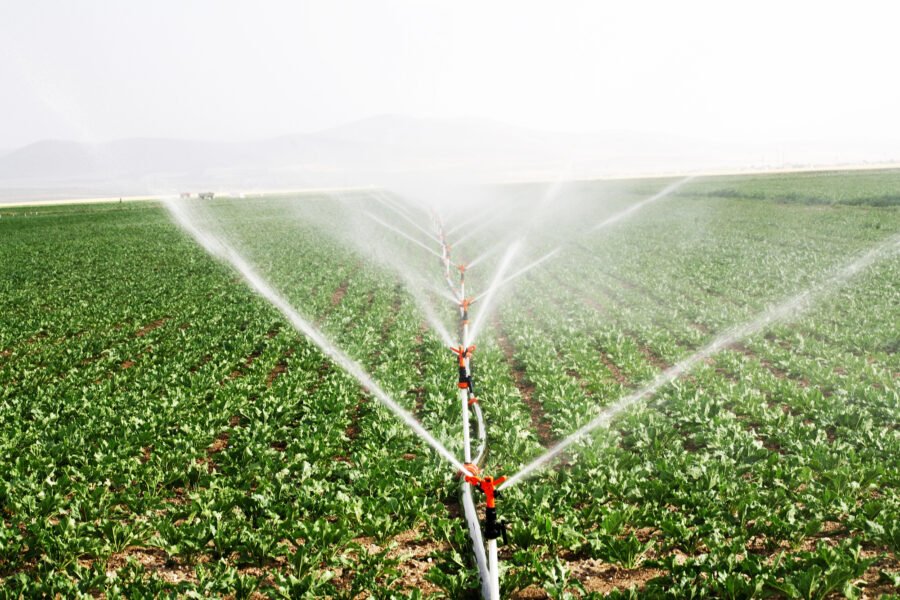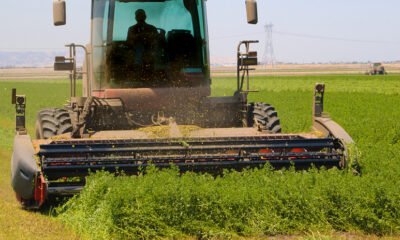agriculture
Bold New Bill to Overhaul Groundwater Rules for Rural Communities Moves Forward

A Republican-sponsored bill aimed at repealing the Willcox Active Management Area and implementing groundwater conservation requirements in select rural areas is making headway in the Legislature. The legislation, known as SB1520, proposes the establishment of Basin Management Areas intended to curb groundwater depletion in regions such as Gila Bend, Hualapai Valley, and the Willcox Groundwater Basin, which would transition into the Willcox Basin Management Area.
If at least 10% of registered voters petition the director of the Arizona Department of Water Resources, a Basin Management Area could be formed in these basins. Alternatively, the director could initiate one based on indicators of accelerating groundwater depletion or risks to land from excessive groundwater withdrawal, as outlined in the bill.
Spearheaded by Sen. Tim Dunn, R-Yuma, the bill also seeks to create councils for each Basin Management Area. These councils would consist of representatives from agricultural and industrial sectors, municipal water companies, and an at-large member residing within each basin.
The Senate approved the bill on March 13, and a hearing before the House Natural Resources, Energy & Water Committee is set for March 25. This proposal represents the latest effort to devise a regulatory framework addressing groundwater decline in rural areas, diverging from the established Active Management Areas and Irrigation Non-Expansion Areas that have been in place since the Groundwater Management Act of 1980.
Many farmers and rural constituents argue that the existing regulations are overly stringent and limit local control over groundwater management. Dunn’s initiative follows similar concerns expressed by other legislators, including twin bills introduced this session by Sen. Priya Sundareshan, D-Tucson, and Rep. Chris Mathis, D-Tucson, which sought similar groundwater preservation measures but failed to advance.
Dunn’s proposal resembles a bill introduced last year by former Sen. Sine Kerr, which did not progress through the House. Kerr noted that stakeholders, including farmers and irrigation district representatives, requested manageable regulations tailored to their specific needs.
“Each basin has unique requirements,” Dunn said. “This bill aims to address those variances.” Currently undergoing stakeholder discussions, SB1520 may experience amendments as Dunn collaborates with various groups, including Democrats and the Governor’s Office, to refine it further.
Proponents of the bill argue that it effectively balances conservation with the demands of agriculture, ranching, industry, and local governance. “It provides clarity for water rights,” stated John Boelts, president of the Arizona Farm Bureau. “The legislation encourages collaboration within geographic areas that share the same groundwater source, allowing them to manage their resources effectively.”
However, environmental groups have expressed concerns regarding the bill’s effectiveness in safeguarding groundwater and preserving aquifers. The legislation calls for a 10% reduction in annual groundwater usage over ten years, with critics deeming this plan insufficient. Sandy Bahr, director of the Sierra Club’s Grand Canyon chapter, voiced skepticism, suggesting the bill could create a false sense of security regarding groundwater management.
Bahr also pointed out that the bill lacks inclusivity by not covering more basins compared to the earlier Rural Groundwater Management Act proposed by Sundareshan and Mathis, which encompassed five basins. Dunn acknowledged the potential for additional areas to be designated as Basin Management Areas but emphasized the need for supportive data.
“We are open to discussions, but we require data from the department as part of our continuing dialogue,” Dunn affirmed.


















